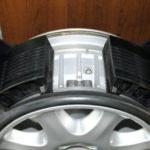Car dealerships have a bad reputation, but they serve their purpose. They are there to help you get the best deal on a car, and if you know how to navigate through them properly, they can be an awesome resource. The first thing to do when making a deal with a car dealer is call ahead and ask for their best price on the model you want. Then, bring along someone who knows about cars so that they can help negotiate on your behalf (as long as they aren’t so nice that they give in too easily). If possible, try finding out what other customers have paid for similar models nearby so that you know what kind of range your offer should fall into (e.g., $18K-$21K). After that comes getting credit approval from auto financing companies like Capital One Auto Finance or Santander Bank – these will tell you how much down payment money is required as well as how much interest rate will be charged per month for financing options available at this moment (this will also depend on whether it’s done through dealer itself or not).”
Bring a friend
The best way to make a deal with a car dealer is to bring a friend who knows about cars and car dealerships. Your friend should be someone who will be honest with you, support you, and help the process go smoothly.
Make a list of the car’s features you want and be prepared to make concessions.
Making a list of the car’s features you want and being prepared to make concessions is an important step in negotiating with a dealer. If you are willing to drive a different car for the same monthly payment, this is an example of a concession that can be made. If you know your credit score, it will help determine whether or not they will accept less than what they originally offered.
Know your credit score and be prepared to negotiate.
The first step to getting a fair deal is knowing your credit score. It’s the most important factor in a car deal, and if you don’t know yours, get it before going to the dealership. Car dealerships will pull your credit report when they run a background check on you, so if they see that your score isn’t great (think 620 or below), then they may try to take advantage of this by offering an interest rate higher than what’s fair.
The best way to improve your score? Paying bills on time and keeping balances low are two ways that can help boost those numbers! If there are any mistakes listed on your report–like an old unpaid bill or collections account–then contact the company responsible for correcting them as soon as possible so they don’t impact future applications for loans or lines of credit like mortgages or auto loans.”
Know what kind of interest rate you are getting on your current vehicle and think about whether you are willing to drive a different car for the same monthly payment.
- Know what kind of interest rate you are getting on your current vehicle and think about whether you are willing to drive a different car for the same monthly payment.
- Be prepared to make concessions, including giving up additional warranties or extras that don’t matter much to you in exchange for a lower price tag.
- Think about the type of vehicle that best suits your needs: do you need space? speed? fuel efficiency? luxury features like automatic seat warmers or heated seats? All these factors will affect how much money goes into each car model, so make sure it’s worth it!
Don’t be afraid to walk away if necessary. You can always come back later with a better offer.
Don’t be afraid to walk away if necessary. You can always come back later with a better offer.
If the dealer won’t budge on their price, or is offering too low of an amount for your trade-in, don’t feel pressured into making a decision right away. It’s perfectly okay to say “no” and leave the dealership without buying anything–you’ll have plenty of opportunities to negotiate later in the process!
Car dealerships are not all bad, but you need to know how to deal with them before you go into one
Car dealerships are not all bad, but you need to know how to deal with them before you go into one.
The first thing that you should do is research the car that you want and get an idea of what it costs new and used. This will help prevent any surprises when negotiating with the dealer.
If there’s a specific model or year that catches your eye, try calling around to local dealerships to see if any of them are willing to sell their inventory at wholesale prices (this might require more effort on your part). If there isn’t much difference between retail and wholesale costs, then I would stick with buying new over used because most cars depreciate significantly after just one year of use–and this means less money spent on repairs down the road!
Overall, dealing with a car dealer is not as bad as it seems. If you go into the process prepared and know what kind of deal you want, then it should be relatively easy to come out with something that works for both parties involved. Just remember that there are always going to be some tricks up their sleeves so make sure that you know what they are before agreeing on anything!











